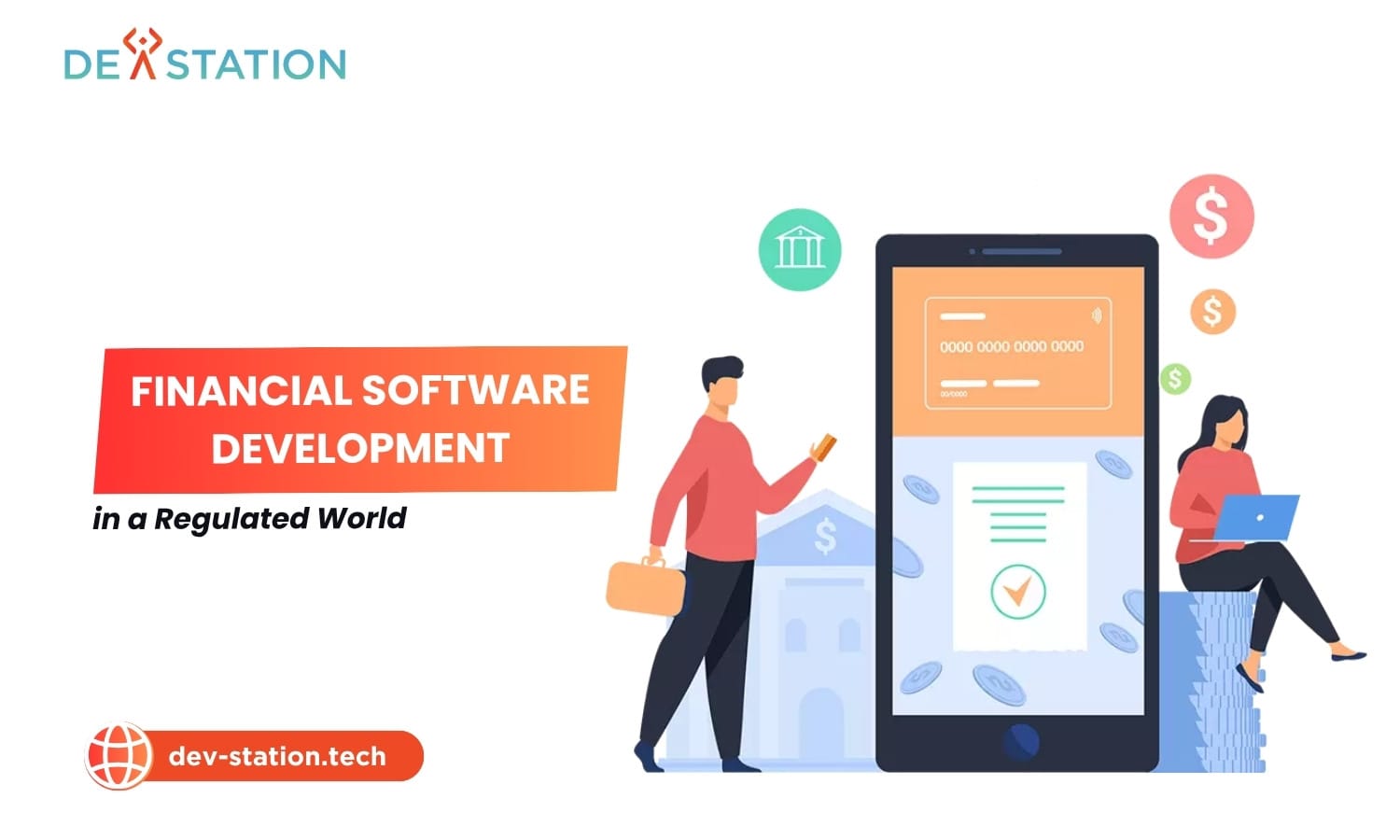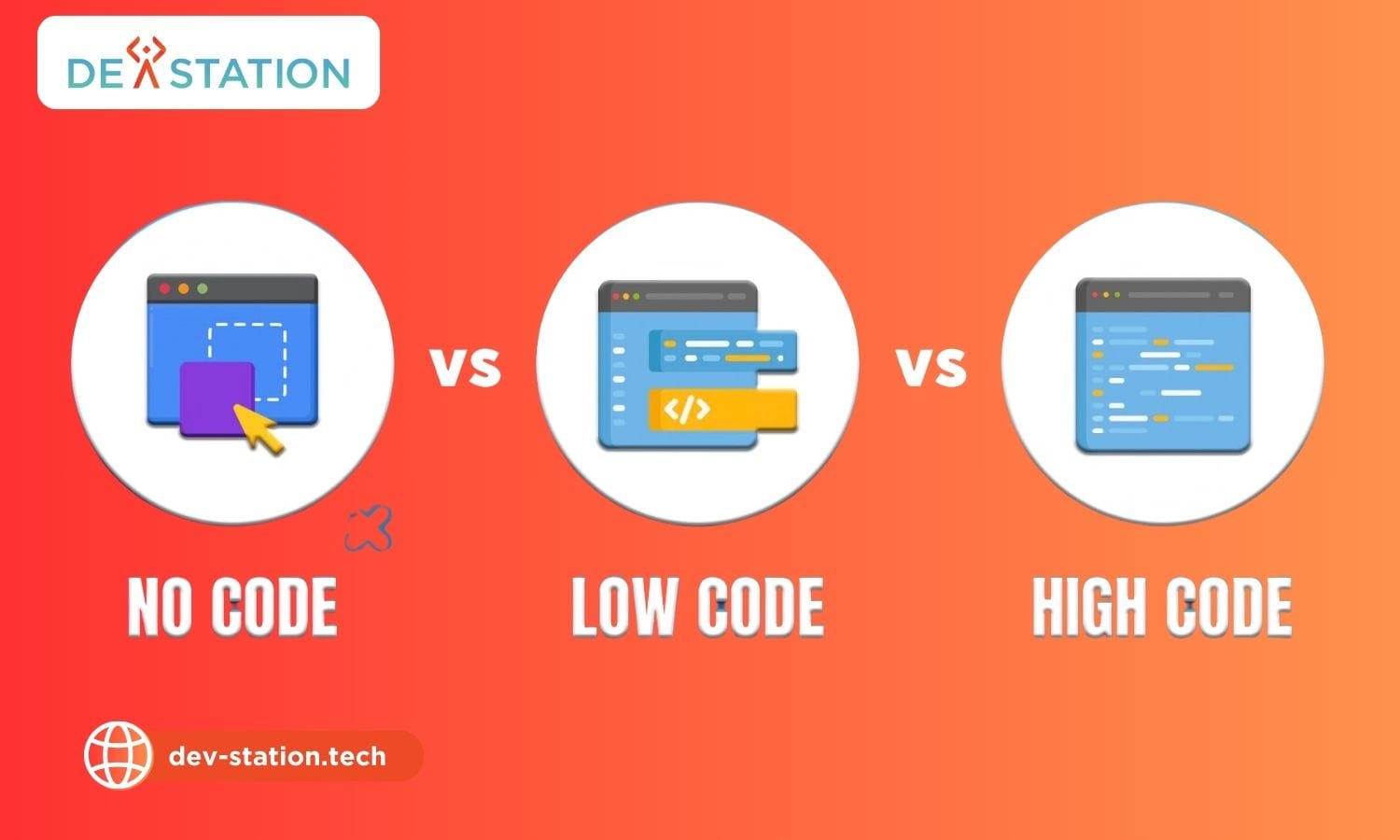Financial software development, the cornerstone of modern FinTech, involves creating secure, compliant, and scalable applications for the finance industry. At dev-station.tech, we navigate this complex landscape by building robust custom financial software solutions that drive innovation while ensuring rigorous adherence to global regulations. This guide covers everything from core banking systems and wealth management platforms to advanced FinTech engineering.
Contents
ToggleWhat Are The 7 Key Considerations for Financial Software Development?
Building successful financial software requires a multi-faceted approach focusing on seven critical areas: regulatory compliance, robust security, scalable architecture, advanced analytics, seamless third-party integrations, user-centric design, and a comprehensive testing strategy. Mastering these ensures your product is not only innovative but also secure, compliant, and trusted by users.
Developing software for the financial sector is unlike any other industry. The stakes are incredibly high, with zero tolerance for errors, security breaches, or non-compliance. A single oversight can lead to catastrophic financial losses, irreparable reputational damage, and severe legal penalties. For startups and established institutions alike, partnering with an experienced financial software development company is essential. At Dev Station Technology, we have distilled the process into seven key considerations that form the bedrock of any successful FinTech project.
According to a 2024 report by the Boston Consulting Group, 60% of financial institutions that invested in custom platforms reported a 15% or greater increase in revenue due to enhanced operational efficiency. This highlights the immense value of getting your custom fintech software development right from the start. Let’s explore the seven critical pillars for building next-generation financial applications.
1. How Critical Is Regulatory Compliance and Risk Management?
Regulatory compliance is the most critical aspect of financial software development. Non-compliance can result in fines exceeding billions of dollars, operational shutdowns, and loss of licenses. A robust framework must be embedded into the software architecture from day one.
The financial industry operates within a complex web of ever-changing regulations. Integrating compliance into the core of your software is not optional; it is a fundamental requirement. Your development partner must have demonstrable expertise in navigating these legal frameworks. Dev Station Technology builds software with a compliance-first mindset, ensuring your platform meets all necessary standards from the outset.
| Regulation | Primary Focus | Applicable Software Area |
|---|---|---|
| PCI DSS | Payment Card Data Security | Payment Processing, E-commerce |
| GDPR / CCPA | Data Privacy and Protection | All systems handling user data |
| AML / KYC | Anti-Money Laundering / Know Your Customer | Onboarding, Transaction Monitoring |
| SOX | Financial Reporting Integrity | Accounting, Auditing Systems |
For example, failing to meet PCI DSS compliance can result in penalties ranging from $5,000 to $100,000 per month. Our development process includes automated compliance checks and audit trails to mitigate these risks. We also draw expertise from our work in related fields, utilizing principles from blockchain consulting to enhance transparency and security.
2. Why Is Scalable Architecture a Non-Negotiable Requirement?
A scalable architecture ensures your software can handle growth from one hundred users to one hundred million without performance degradation. Using a microservices architecture allows for independent scaling of components, reducing bottlenecks and future-proofing your investment.
Financial applications often experience unpredictable peaks in transaction volume. A monolithic architecture can quickly become a bottleneck, leading to system crashes during critical moments. Dev Station Technology champions a microservices-based approach for complex custom financial software development. This architectural style structures an application as a collection of loosely coupled services.
- Independent Scaling: If your payment processing service is under heavy load, you can scale it independently without affecting the user authentication service.
- Technology Flexibility: Each microservice can be built with the best technology for its specific job. You could use Java for a high-performance trading engine and Python for a data analytics service.
- Fault Isolation: A failure in one service does not bring down the entire application, dramatically improving resilience and uptime.
3. What Makes Ironclad Security an Absolute Priority?
Security is not a feature but the foundation of all financial software. A single breach can cost an average of $4.45 million, according to IBM’s 2023 report. A multi-layered security strategy, including encryption, threat modeling, and regular penetration testing, is essential.
Financial software is a prime target for cybercriminals. Therefore, security must be integrated into every stage of the development lifecycle, a practice known as DevSecOps. Dev Station Technology’s approach to security is comprehensive:
- End-to-End Encryption: All data, both in transit (using TLS 1.3) and at rest (using AES-256), must be encrypted.
- Secure Coding Practices: Our developers follow OWASP Top 10 guidelines to prevent common vulnerabilities like SQL injection and Cross-Site Scripting (XSS).
- Multi-Factor Authentication (MFA): We implement robust authentication mechanisms to protect user accounts from unauthorized access.
- Regular Security Audits: We conduct periodic vulnerability scanning and third-party penetration testing to identify and remediate potential weaknesses before they can be exploited.
This rigorous approach is vital across all financial domains, from enterprise-level banking software development to specialized stock trading software development.
4. How Does a User-Centric Design Impact Adoption and Trust?
An intuitive user interface (UI) and a seamless user experience (UX) are paramount for adoption. A study by Forrester Research shows that a well-designed UI can boost conversion rates by up to 200%, and a better UX can yield conversion rates up to 400%.
Even the most powerful financial tool will fail if its intended users find it confusing or difficult to use. In the financial world, a confusing interface can lead to costly user errors. Our design process is rooted in understanding the end-user, whether they are a professional trader, a financial advisor, or a retail banking customer.
We focus on:
- Clarity and Simplicity: Presenting complex financial data in a clear, digestible format through intuitive dashboards and visualizations.
- Accessibility: Ensuring the application is usable by people with disabilities, adhering to WCAG standards.
- Trust Signals: Incorporating design elements that build user trust, such as clear security indicators and transparent fee structures.
This is especially true for platforms like wealth management software, where clarity builds client confidence.
5. What Is the Role of Third-Party Integrations via APIs?
Modern financial software rarely exists in a vacuum. A robust API strategy is crucial for integrating with other services like market data feeds, payment gateways, credit scoring agencies, and CRM systems, creating a seamless and powerful ecosystem.
The ability to connect with other platforms is a hallmark of modern fintech software development. An API-first approach allows for greater flexibility and functionality. Key integrations include:
- Market Data Providers: For trading platforms, real-time data from sources like Bloomberg or Refinitiv is essential.
- Payment Gateways: Securely processing payments through services like Stripe, Adyen, or PayPal.
- Plaid and Open Banking: Allowing users to securely connect their bank accounts to your application.
- Accounting Systems: Syncing financial data with platforms like QuickBooks or Xero is crucial for tools like custom accounting software.
6. Why is Rigorous and Continuous Testing Essential?
In finance, a bug is not a minor inconvenience; it can be a multi-million dollar liability. A comprehensive testing strategy, including unit tests, integration tests, end-to-end tests, and performance load testing, is non-negotiable to ensure the software is flawless.
Our quality assurance process is relentless. We employ a suite of automated and manual testing methodologies to ensure every line of code is perfect. This is particularly vital in the insurance software development space, where policy and claims calculations must be exact.
- Unit Testing: Verifying that individual components of the code work as expected.
- Integration Testing: Ensuring that different microservices and third-party APIs work together correctly.
- Performance Testing: Simulating high-traffic scenarios to ensure the system remains fast and responsive under load.
- Security Testing: Proactively trying to breach the system to find and fix vulnerabilities.
7. How Does Advanced Data Analytics Provide a Competitive Edge?
Data is the lifeblood of finance. Integrating advanced analytics and machine learning allows your software to move beyond simple transaction processing and provide predictive insights, personalized recommendations, and sophisticated risk assessment, offering a significant competitive advantage.
Modern financial software development companies leverage data to create intelligent systems. By incorporating machine learning models, your application can:
- Detect Fraudulent Transactions: Analyze patterns in real-time to flag and block suspicious activity with greater accuracy than rule-based systems.
- Assess Credit Risk: Develop more accurate credit scoring models by analyzing a wider range of data points.
- Provide Robo-Advisory: Offer automated, algorithm-driven financial planning and investment management services.
- Personalize User Experiences: Recommend relevant financial products or services based on a user’s behavior and financial situation.
How Can You Partner with Dev Station Technology for Your FinTech Project?
Partnering with Dev Station Technology provides you access to a team of niche experts who specialize in building secure, compliant, and innovative financial software. We act as your dedicated development partner, guiding your project from initial concept to a successful, market-ready launch.
Choosing the right development partner is the single most important decision you will make. You need a team that not only possesses deep technical expertise but also understands the nuances of the financial industry. Dev Station Technology is a premier financial software development company that excels in this regulated world. We offer end-to-end financial software development services designed to de-risk your project and accelerate your time to market.
Our process begins with a comprehensive discovery phase where we work with you to define the scope, identify regulatory requirements, and create a strategic roadmap. We believe in complete transparency and collaborative partnership. Whether you are a startup building a disruptive custom fintech app or a bank looking to modernize its core systems, our team has the expertise to deliver.
We invite you to learn more about our approach and see how we can help bring your vision to life. For a deeper conversation about your project, please visit us at dev-station.tech or contact our expert team directly via email at sale@dev-station.tech. Let Dev Station Technology be the partner that helps you build the future of finance.





